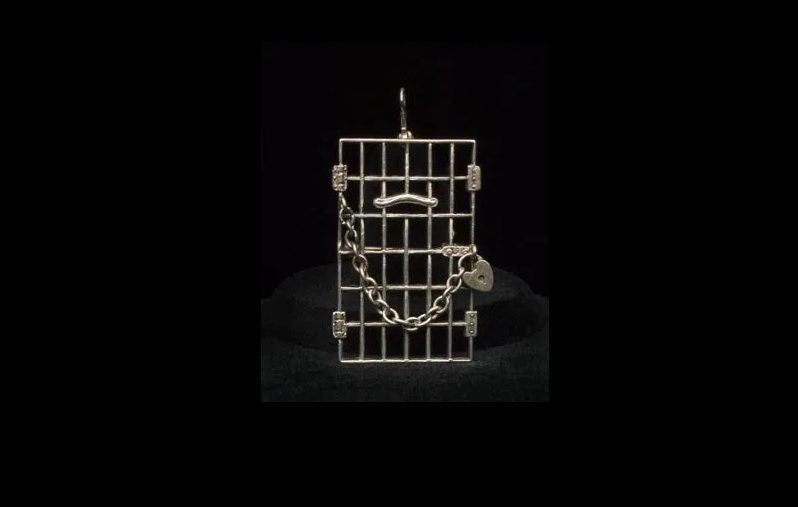[broadstreet zone=”52093″]
FRAMINGHAM – Today, August 26, 2020 marks the 100th anniversary of the adoption of the 19th Amendment. The 19th Amendment was designed to give women the right to vote as it can not allow for voting discrimination on the basis of sex.
While this right wasn’t always, and still isn’t always, guaranteed for all Americans, particularly people of color, this is still an important milestone to celebrate.
But while many Americans know the names of Susan B. Anthony, Elizabeth Cady Stanton, and Lucretia Mott, many do not know of the suffragettes who were from this very community of Framingham.
Their story is not only inspiring, but it is also one of relevancy.
With the current protests on Black Lives Matter going on, it is important to remember that the ones who protest and even get jailed by the state for demanding equal rights might be the most American of us all.
These are the stories of Josephine Collins and Louise Parker Mayo, two women who were jailed for protesting for the right to vote.
Courtesy of Framingham History Center
Josephine Collins (1868-1952) was an unmarried woman when she took up the fight for suffrage. She was a business owner who took over her brother’s grocery store on the Framingham Centre Commons. She then later ran a periodicals shop in the Esty Building downtown.
In addition to her businesses, she also hosted a tea room at the corner of Pleasant Street and Belknap Road where women gathered to discuss various issues.
Through her work in buisness and talking with various women, Collins was on the side of the suffragettes, particulary of the National Women’s Party.
The National Women’s Party was an organization started by Lucy Burns and Alice Paul in 1916. Both women were previous members of the suffragette organization, the National American Women Suffrage Association. The rift between the two groups came from their methods of achieving women’s suffrage.
[broadstreet zone=”53130″]

The National American Women Suffrage Association believed in securing suffrage through changes made at the state level. This was contrary to the methods used by the National Women’s Party which was more focused on the passage of a constitutional amendment on women’s suffrage.
The methods used by the National Women’s Party were also heavily inspired by the methods used by Emmeline Parkhurst and the British Suffrage movement which were deemed as terrorist acts by the UK government.
Collins joined a group of women part of the National Woman’s Party at the Massachusetts State House on February 24, 1919, to picket President Wilson. She carried a sign with the slogan used by other National Women’s Party picketers, “Mister Wilson, how long must women wait for liberty?”
Police warned the women that they would be arrested if they did not disperse. When they failed to comply, the police brutially arrested them,
When Collins and 22 other women refused to give their real names to the court and agree to pay a five-dollar fine (which would be about 75 dollars in today’s money), the group was sentenced to 8 days at the Charles Street Prison.
Collins was determined to serve the full 8 days but was released early when the fine was paid by one of her brothers.
[broadstreet zone=”58610″]
Louisa Parker Mayo (1868-1952) was a schoolteacher, a mother of 7, and a co-manager of her family’s farm. Mayo was known as a firebrand which surprised many individuals due to her seeming traditionalist lifestyle.
Due to her interest in women’s suffrage, Mayo served on the first executive board of Framingham’s Equal Suffrage League chapter.
Mayo was one of many women who went down to Washington in support of the National Woman’s Party picket of the White House.
At the time, picketing was almost unheard of, compared to now, and considered a radical act. In addition to World War I ongoing at the time of the suffrage movement, picketing was considered an act of sedition by the federal government, especially during wartime.
Many of the women who were involved in the picketings were arrested by police and brutually treated by prision guards and staff while serving time.
The stories told by these arrested women inspired Mayo to take up the fight down in Washington and participated in a Bastille Day protest.
[broadstreet zone=”59947″]
On July 14, 1917, Mayo and 16 other members of the Women’s Congressional Union picketed outside the White House. They were arrested by federal authorities on the charges of “unlawful assembly” and “obstructing traffic”. They were sentenced to 60 days in the Occoquan Workhouse in Virginia. Due to public outrage from allegations of unfair and brutal treatment in the prison workhouses, President Wilson was forced to pardon the women 3 days later.
For many years, these two women have faded into obscurity, overshadowed by the movement’s larger leaders.
But, it is important to note that a movement is only as strong as its supporters, not its leaders.
While leaders have the task to rally supporters and members, if members are not appeased to or spoken to, the movement will falter under its own weight.
While many women discussed were leaders of their respective organizations, they do not represent the true backbone of how the organizations have survived and succeeded.
Josephine Collins and Lousia Parker Mayo were part of that backbone.
[broadstreet zone=”59948″]
But, Framingham, and the Commonwealth of Massachusetts, is starting to recongonize thier own unsung heroes of the suffrage movement.
The Framingham History Center has been put on events in the past to educate its citizens on these women. It also displays mementos from the two women of their time in prison suffering for suffrage.
The jail door pins (pictured) awarded to Louise Parker Mayo and Josephine Collins are held in the collections of the Framingham History Center.
The pin was designed by Alice Paul – founder of the National Woman’s Party – and presented to all the American women who were imprisoned in the fight for suffrage.
The first pins were awarded to each “prisoner of freedom” on December 1917 at a meeting held to honor suffragists jailed after arrests in
Washington, D.C. the previous July.
The Framingham History Center still sells replica pins.
Framingham honored two local suffragists, National Woman’s Party suffragists, Louise Parker Mayo and Josephine Collins, by naming a square “Mayo-Collins Square, outside the Framingham History Center’s Edgell Memorial Library.




